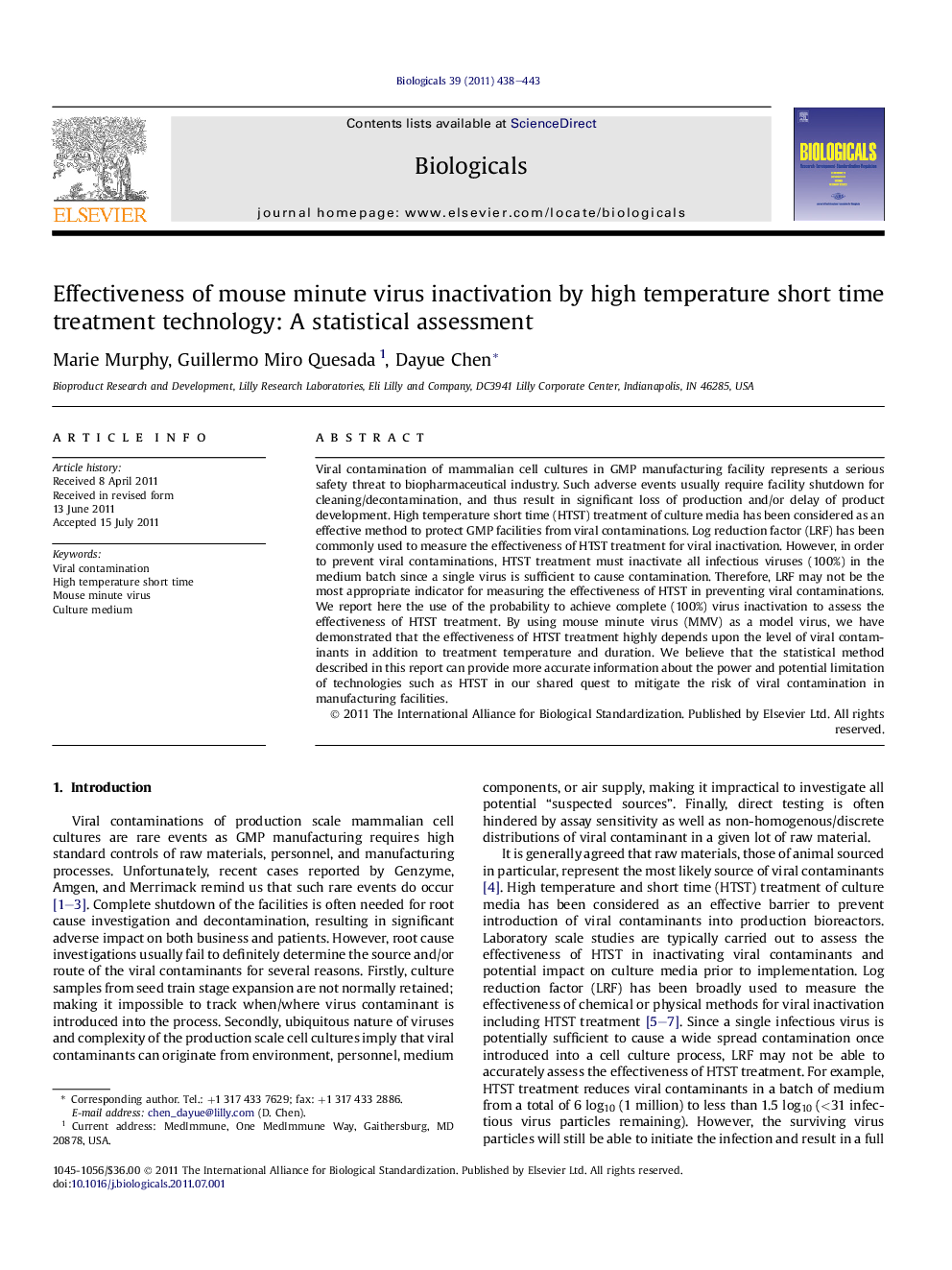| کد مقاله | کد نشریه | سال انتشار | مقاله انگلیسی | نسخه تمام متن |
|---|---|---|---|---|
| 2034101 | 1071991 | 2011 | 6 صفحه PDF | دانلود رایگان |

Viral contamination of mammalian cell cultures in GMP manufacturing facility represents a serious safety threat to biopharmaceutical industry. Such adverse events usually require facility shutdown for cleaning/decontamination, and thus result in significant loss of production and/or delay of product development. High temperature short time (HTST) treatment of culture media has been considered as an effective method to protect GMP facilities from viral contaminations. Log reduction factor (LRF) has been commonly used to measure the effectiveness of HTST treatment for viral inactivation. However, in order to prevent viral contaminations, HTST treatment must inactivate all infectious viruses (100%) in the medium batch since a single virus is sufficient to cause contamination. Therefore, LRF may not be the most appropriate indicator for measuring the effectiveness of HTST in preventing viral contaminations. We report here the use of the probability to achieve complete (100%) virus inactivation to assess the effectiveness of HTST treatment. By using mouse minute virus (MMV) as a model virus, we have demonstrated that the effectiveness of HTST treatment highly depends upon the level of viral contaminants in addition to treatment temperature and duration. We believe that the statistical method described in this report can provide more accurate information about the power and potential limitation of technologies such as HTST in our shared quest to mitigate the risk of viral contamination in manufacturing facilities.
Journal: Biologicals - Volume 39, Issue 6, November 2011, Pages 438–443